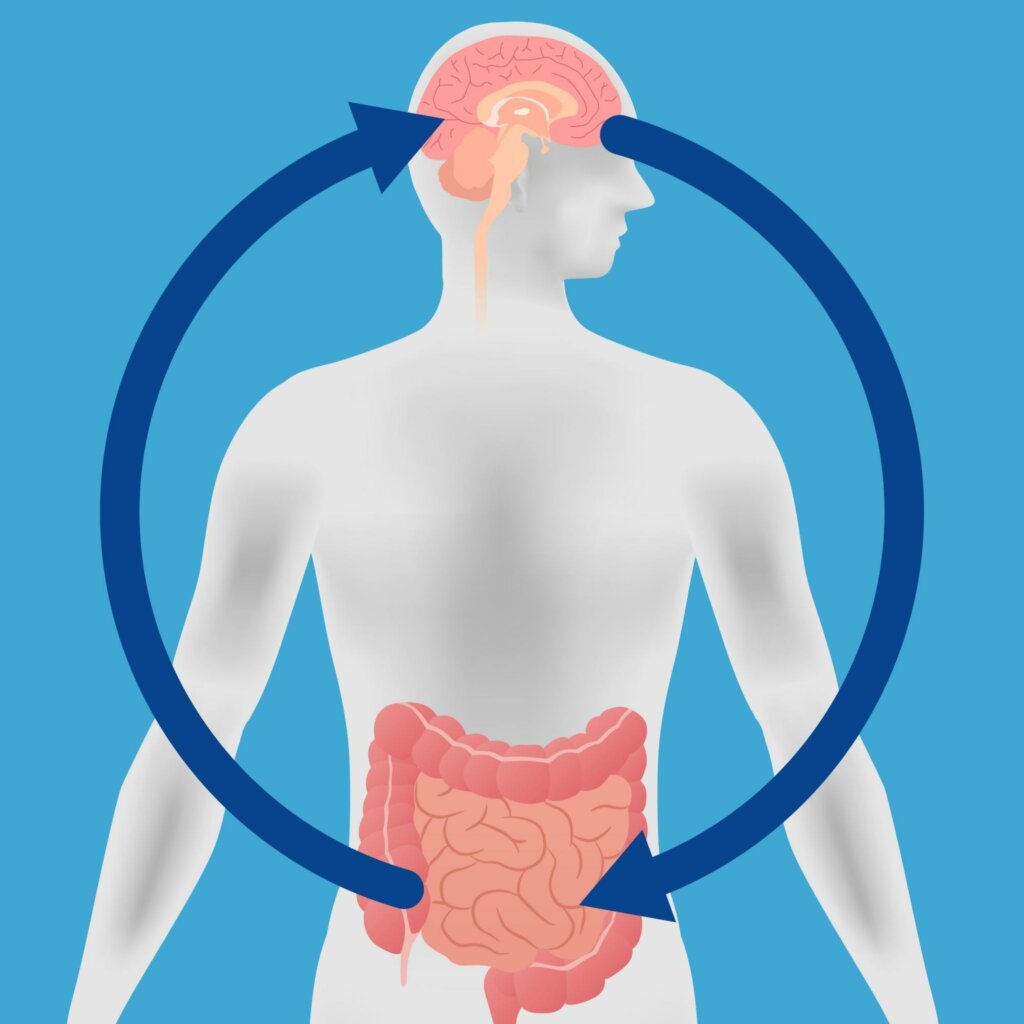A Closer Look at the Gut-Brain Connection

In last month’s blog, 9 Ways to Improve Your Gut Health, we touched on the connection between gut health and mental health. This connection is mutual, with gut inflammation correlating with higher instances of mental illness and poor gut function linked to abnormal function of the central nervous system. There is evidence to suggest a correlation between gut microbiota and both gastrointestinal and extragastrointestinal diseases. Still, inflammation in the gut also may contribute to mental illnesses such as anxiety and depression. In this blog, we wanted to delve a little deeper into the gut-brain connection so you can take steps to improve your mental and gastrointestinal health.
Gut Health and Anxiety
Strong emotions have the potential to elicit reactions in your gastrointestinal system. This is why feelings of stress, nervousness, sadness, and shock may cause you to feel nauseous or physical pain in the stomach. This is one of the reasons why people with anxiety who tend to get nervous and stressed more easily experience more intense and frequent gastrointestinal symptoms. It has also been suggested that those with GI disorders have brains that are more responsive to pain signals from the GI tract, making them perceive pain differently and more intensely than others. When that acute sense of pain perception is combined with stress, it can make the existing pain seem even worse.
The connection between gut health and anxiety can also be observed on a biological level. Those suffering from mental illnesses such as anxiety and depression have been linked to reduced microbial diversity and a loss of healthy bacteria in the gut. In some cases, studies have shown that probiotics used to improve gut health can improve anxiety and depression symptoms similar to prescription medications. Therapy and counseling are important outlets to identify coping mechanisms, reduce stress, and more when it comes to mental illness. Multiple studies have found that psychological counseling can improve GI symptoms in addition to treating anxiety or depression.
Gut-Brain Connection and Digestion
One of the most common ways that GI orders impact us is through digestion. The enteric nervous system (ENS) is a system in the body that can control gastrointestinal behavior independently of the central nervous system. The ENS is another system that can trigger significant emotional swings, typically experienced by those with IBS or other functional bowel issues like constipation or diarrhea. More evidence is being uncovered to support the claim that irritation in the GI system can trigger mood changes in the central nervous system.
The Bottom Line
While initial studies have identified a link between gut health and mental health, there is still much to be discovered when it comes to how dependent these systems are on one another and what treatments or combinations of treatments are the most beneficial. This initial discovery had prompted experts in the field to delve deeper into what implications the digestive system may have on other systems in the body. While there may still be a lot to learn, there is no doubt that the gut-brain connection has become a more popular area of interest in both the digestive and psychological health worlds.
Contact Birmingham Gastroenterology
A gastroenterologist is best equipped to diagnose the underlying cause of any possible gastrointestinal condition. If you are looking for ways to improve your gut health, or if you have questions about the gut-brain connection, Birmingham Gastroenterology can help. We have decades of experience treating diseases and disorders in all parts of the digestive system. To make an appointment to discuss your symptoms and treatment options or ask questions about activities that help aid digestion, call us at (205) 271-8000.

